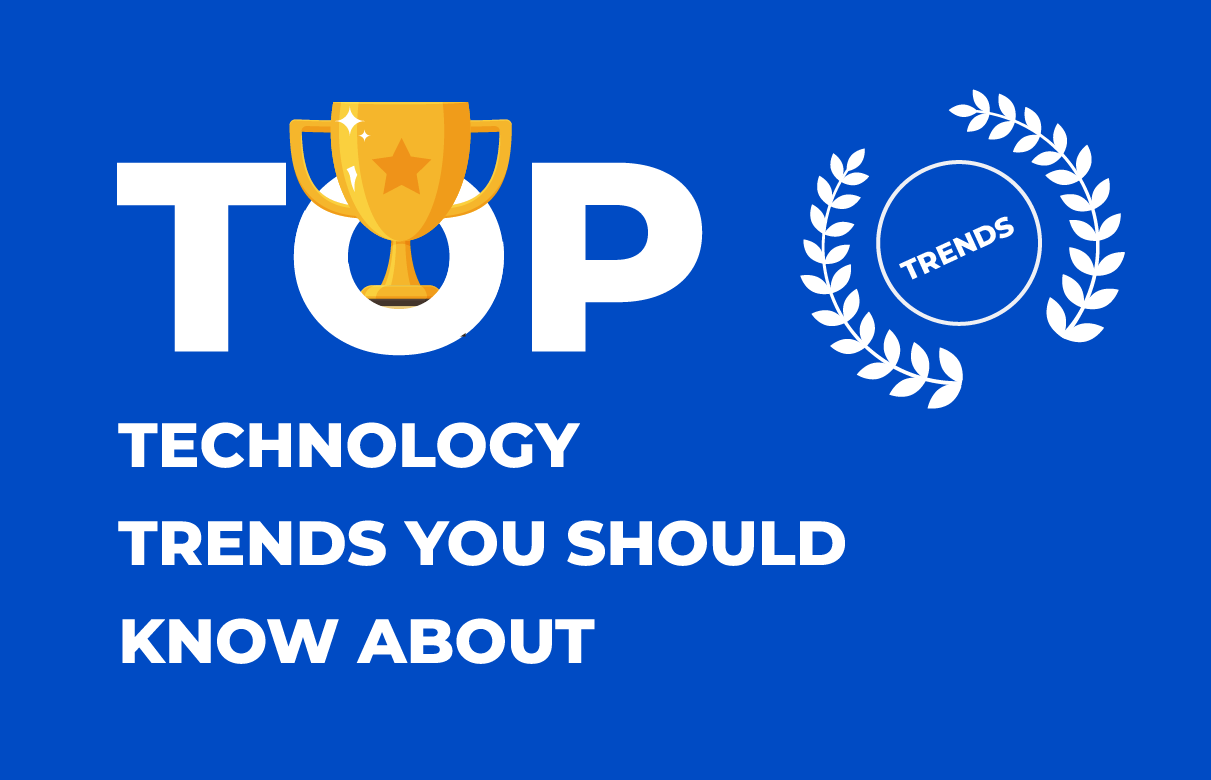In the age of digital transformation and software-enabled changes, businesses work every angle to provide the highest quality of services and products. Intelligent automation has been among the most efficient methods of achieving that aim. What is intelligent automation (IA) and how does it revolutionize businesses? Read on to learn about IA and its application across industries.
What Is Intelligent Automation?
Today, IA is becoming the main driving force behind digital transformation processes, helping companies go digital seamlessly.
Intelligent automation is a combination of artificial intelligence (AI) and robotic process automation (RPA), where AI enables insight-driven analytics, decision-making and personnel management, and RPA automates processes and reduces human participation in them.

Another way to define it is: it’s a joint implementation of bots and software intelligence in the production process to assist people in creating new products and services.
According to Gartner’s definition of intelligent automation, IA is an umbrella term that brings together various strategies, skills, tools and techniques that eliminate the need for labor, increase the predictability and reliability of services and reduce costs.
Rule-based, patterned and structured data–powered IA solutions help address the following inefficiencies at a workplace:
- High labor cost
- Workforce shortage and ineffectiveness
- Time- and resource-consuming repetitive tasks
- Inability to process complex and high-volume data
- Low quality of products and services
Advantages and Disadvantages of Intelligent Automation
With the AI sector constantly growing and predicted to reach $150 billion by 2026, the implementation of intelligent process automation tools has a strong positive effect on business development. The main benefits are derived from streamlined operations and the decrease in manually performed processes, and are as follows:
- Efficient use of equipment and manpower
- Increased effectiveness
- Lower costs and high ROI
- Seamless customer experience
- Enhanced cybersecurity
- Focus on critical issues rather than on mundane work
Companies that decide to automate their processes should make sure that they have a solid background for IA implementation. The main challenges that IA entails are the following:
- Establishing a robust governance
- Creating a proper IT environment and technological ecosystem
- Developing the implementation strategy and choosing the right tools
- Restructuring the existing system and retraining employees
- Teaching necessary metrics and assigning tasks
- Managing risks

Intelligent Automation in Practice
Enterprises have been using automation for quite some time now. It started with machines replacing humans on assembly lines, and evolved into AI, RPA and cognitive algorithms being at the heart of complicated environments that imitate human reasoning and behavior. Today’s automation dramatically changes the way humans and machines interact with each other under the rapid growth of data flows, digital transformation of life and practically unlimited computing power.
But IA is not easy to implement, as it requires a well-thought-out comprehensive approach that should include the following fundamentals:
- A knowledge base
- Proper governance
- The right toolset
- Thorough analytics
- Continuous improvement
- A solid IT environment

Intelligent automation systems can be implemented in nearly every industrial sector. Advanced techniques and great computing capacity create a new generation of hardware and software robots that perform both cognitive and physical tasks. They not only process vast amounts of information but also analyze it, spot inconsistencies, check for correctness, learn in the process of work, adapt to changes and make decisions. Though the final decision-making is still the responsibility of a human operator, IA software does much of the work.
Apart from automating processes that are common for different business domains, such as HR, payroll management, marketing activities and others, IA solutions can also help streamline industry-specific processes. Below, we describe major use cases of intelligent automation across the business domains where we feel at home: commerce, manufacturing, intellectual property, insurance, healthcare, logistics, telecom, real estate, and banking and finance.
Intelligent Automation in Commerce
IA is an efficient way to boost sales, increase customer engagement and reduce costs, which is why retailers heavily invest in it — annual expenses for AI are predicted to reach $7.3 billion by 2022. Indeed, smart automation provides a variety of tools and techniques that impart considerable benefits. Some examples of intelligent automation in commerce are as follows:
- Guidance through online shopping. Personalized brand experience is more important than ever before. AI enables it by digesting big volumes of data on customer journeys via chatbots, virtual sales assistants and recommendation engines.
- Guidance through offline shopping. Retailers equip their brick-and-mortar stores with devices (self-service terminals, digital shelves or shelf scanners) to streamline and optimize shopping.
- Improved warehouse logistics. Machines replace humans for a wide range of operations, such as stock replenishment and audit, shrinkage monitoring and assortment optimization.
- Transaction security. Smart algorithms can detect signs of fraudulent operations, which allows companies to suppress malicious behavior in a timely manner.
- Data-driven planning of supply and delivery. AI-powered algorithms that digest big data and analytical insights can predict demand and plan procurement.
- Hands-free checkout. In addition to contactless payments that have become an everyday practice, Amazon Go pioneered the concept of the check out–free system. Customers just walk through the system with their shopping carts while smart algorithms calculate what to charge them and withdraw money from their accounts.
Intelligent Automation in Manufacturing
IA has triggered industrial revolutions — Industry 4.0 and Industry 5.0, drastic changes in processes and environments that rely on cyber-physical and cognitive systems. These systems are inspired by recent technological advances, such as AI, ML, IoT, robotics, autonomous vehicles, 3D printing, AR and VR, wearables, additive manufacturing, nanotechnology, biotechnology, energy storage and quantum computing.
As a result, physical and digital robots that are driven by the cutting-edge intelligent automation technologies and tools can perform many operations, replacing or supplementing humans, and do so in the following ways:
- Automated factory floor. Physical robots and cobots (collaborative robots) can perform almost any manufacturing process in a factory. The factory floor has evolved over time into dark or lights-out premises where human participation is not required.
- Automated workflow. With digital bots, manufacturers can process huge amounts of data to streamline ordering, procurement, appointment scheduling and alerting.
- Predictive analytics. The capability to fix aberrations in a proactive manner helps manufacturers prevent outage and downtime. With predictive analytics solutions, maintenance engineers can anticipate errors and can address them before the equipment gets seriously affected.
- Machine vision. This technology enables thorough quality inspection that is much more detailed and reliable than that performed by humans.

Read also: The Role of IoT in Smart Manufacturing
Intelligent Automation in Intellectual Property
The role of artificial intelligence in managing intellectual property is indispensable. Specifically, AI- and ML-powered algorithms streamline research by improving the accuracy and efficiency of data retrieval and addressing ambiguities.
Intelligent Automation in Insurance
With claim and appraisal processing, payment calculation, regulatory compliance and policy management lying at the heart of business, effectiveness in the insurance industry depends heavily on well-orchestrated processes. Intelligent robotic process automation is perfect for these processes: virtual bots’ capability to perform repetitive tasks is vastly superior to that of humans.
With IA, insurance service providers automate data management and rate calculations. IA solutions help insurance companies address problems such as manual entry of bulky data, low scalability of processes and poor time-effectiveness.
Intelligent Automation in Logistics and Transportation
More than ever before, intelligent business automation is causing drastic changes in the logistics and transportation industry. IA solutions create a holistic ecosystem that is born the moment a customer buys a car and lasts throughout the existence of the customer journey, which includes car maintenance, on-road behavior, infotainment and route planning.
Some major examples of intelligent automation in the industry are as follows:
- Route optimization. Driven by insights and predictions, IA solutions help drivers find the fastest, most cost-efficient routes and adjust them to avoid traffic and bad
- Supply planning. Having much in common with commerce, logistics also heavily depends on proper supply planning. While this is not an issue for small companies, large companies risk getting bogged down in handling procurement for multiple departments without proper process orchestration.
- Autonomous cars. Still a concept and yet to become reality, AI algorithms that make cars drive on their own will open up a completely new age in transportation.
- Unmanned delivery. AI-controlled drones are designed to deliver orders (however still a concept).

Intelligent Automation in Healthcare
Healthcare providers are among major consumers of IA solutions that extensively use both artificial intelligence and RPA.
With RPA, medical institutions streamline repetitive processes that are connected with accurate, patterned data retrieval, processing and decision-making, which creates a whole new age of evidence-based, more efficient care. Decisions are based on retrieved facts and figures, and not on a doctor’s experience and knowledge alone.
AI in healthcare enables caregivers to better perform the following tasks:
- Personalized treatment. AI’s capability to quickly and effectively process large amounts of data helps in the creation of reliable diagnoses that take into account symptoms and secondary conditions.
- Predictive diagnosing. AI can identify precursory symptoms that humans can overlook.
- Medical imaging. Advanced technologies enable accurate analysis of medical images, such as CT, MR and X-ray, which reduces the risk of misinterpretation and human error.
- Surgical operations. AI-powered robots perform a wide range of operations — gynecological, neck, urological and head surgery, both in collaboration with human surgeons and on their own.
- Nursing. AI-enabled robots also help their human colleagues with time-intensive nursing tasks: they take blood tests, monitor vital signs, and perform treatment procedures and other tasks.
- Patient assistance. Robots provide physical and virtual assistance to elderly people and patients, such as bedside nursing, essential daily activities reminders and others.
- Virtual consultations. AI-powered chatbots make appointments with doctors and provide consultations to patients with early symptoms.
- Remote monitoring. Wearable medical devices allow caregivers to be remotely aware of their patients’ condition, location and current medical treatment.
- Research and drug discovery. AI and machine learning enable quick and cost-effective R&D procedures.
Intelligent Automation in Telecom
The telecom industry makes the most of IA to improve the efficiency of processes in the following business areas:
- Customer account management. Quick and efficient handling of bulky data improves management of user accounts and personnel productivity.
- Call center. Automated call centers enhance customer experience by reducing wait time and providing personalized information.
- Network operations. Telecom service providers improve the quality of their network operations by automating diagnostics, testing, incident addressing, remediation and regular maintenance.
Intelligent Automation in Real Estate
The real estate industry is not conceivable without huge databases of properties and their tenants, each of which requires proper handling and the best possible match. RPA and AI have been revolutionizing the industry by automating many of the repetitive tasks that are resource- and time-consuming, where it’s easy for human error to sneak in. These tasks are as follows:
- Tenant management. IA tools help create, check, and approve or reject applications.
- Property unit and supplier management. RPA streamlines property and supplier onboarding and imports accounting and utility details.
- Accounting. With millions of monthly payments, RPA automates operations related to accounting, payments, general ledger, bank and credit card statements, supplier invoices and others, which frees employees from performing these time-consuming tasks.
- Matchmaking. IA solutions also enable smart decision-making when property and potential tenants are matched automatically.
Read also: Case study on website development and support for the world’s largest flexible workspace provider
Intelligent Automation in Banking and Finance
With intelligent automation systems, finance and banking institutions gain profits, enable regulatory compliance and provide frictionless CX by automating the processes that lie at the core of their business:
- Discounting and financing
- Commercial lending
- Anti–money laundering
- Letter of credit and guarantee issuing
- Inward and outward, import and export payments
- Cash management
Intelligent and Automated Is the New Future-Proof
RPA and AI are creating a new type of workforce, driving digital transformation and broadening business opportunities. Enterprise intelligent automation is still more of a newborn rather than a mature concept in the world of technologies, but it learns and develops fast, and is quickly becoming an important ingredient of business success. IA trends are now in the spotlight, capturing the attention of CEOs, developers and analysts around the world.
SaM Solutions can help your company automate various procedures and incorporate AI, ML and other automation technologies into your projects and business environments. Contact our specialists today and get answers to all your questions.



















 The Latest 15 Information Technology Trends in 2024
The Latest 15 Information Technology Trends in 2024 Top 10 Embedded Software Development Tools
Top 10 Embedded Software Development Tools IaaS vs. PaaS vs. SaaS: What’s the Difference?
IaaS vs. PaaS vs. SaaS: What’s the Difference? IoT Development: Top 15 Internet of Things Tools and Platforms in 2024
IoT Development: Top 15 Internet of Things Tools and Platforms in 2024 10 Examples of Predictive Analytics
10 Examples of Predictive Analytics



![Digital Transformation Strategy [+ Key Trends in 2024]](https://www.sam-solutions.com/blog/wp-content/uploads/2020/07/main-Digital-Transformation-Strategy-min.png)







 What Is Headless CMS?
What Is Headless CMS? SAP Commerce Cloud vs Shopify: A Detailed Comparison for Businesses
SAP Commerce Cloud vs Shopify: A Detailed Comparison for Businesses Java and Cloud Development: An Ideal Pairing
Java and Cloud Development: An Ideal Pairing Component-Based Architecture in Software Engineering: A Comprehensive Guide
Component-Based Architecture in Software Engineering: A Comprehensive Guide Micro Frontend: What It Is and How It Works
Micro Frontend: What It Is and How It Works
Thank you for sharing such useful information.